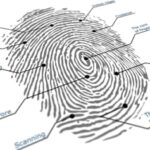A new version of the iPhone’s operating system, iOS 17.3, has introduced a “Stolen Device Protection” feature that requires the user to perform a face or fingerprint scan for sensitive transactions such as applying for an Apple Card payment card or trying to view saved passwords.

Normally, these actions can be performed simply by entering a PIN, though Apple’s Touch ID and Face ID systems are generally presented as the first means of authentication. And PINs can be cracked, sometimes just through observation over a target victim’s shoulder.
Stolen Device Protection also has a “Security Delay” component that requires multiple biometric scans, timed an hour apart, in order to change the iPhone’s passcode or the user’s password for Apple ID. This feature would only kick in when the user appears to be in what Apple’s system deems an unusual location; the idea is that if a thief manages to steal the user’s iPhone and take it elsewhere, it will become much harder, if not impossible, to change these vital security settings in order to gain deep access to the device.
The Stolen Device Protection feature is optional, with users able to toggle it on via the iPhone’s Settings. Still, its introduction signals a significant change in Apple’s security posture, given that the company has always insisted that the PIN is the iPhone user’s core method of authentication, while Apple’s sophisticated biometric authentication systems are meant to enhance convenience.
Other features introduced in the iOS 17.3 update include a playlist collaboration tool for Apple Music, along with the ability to react to friends’ playlists with emojis; expanded AirPlay support for video streaming to hotel TVs; and a wallpaper feature for the iPhone screen that, in Apple’s words, “honors Black history and culture in celebration of Black History Month”.
Source: The Verge
–
January 24, 2024 – by Alex Perala








Follow Us